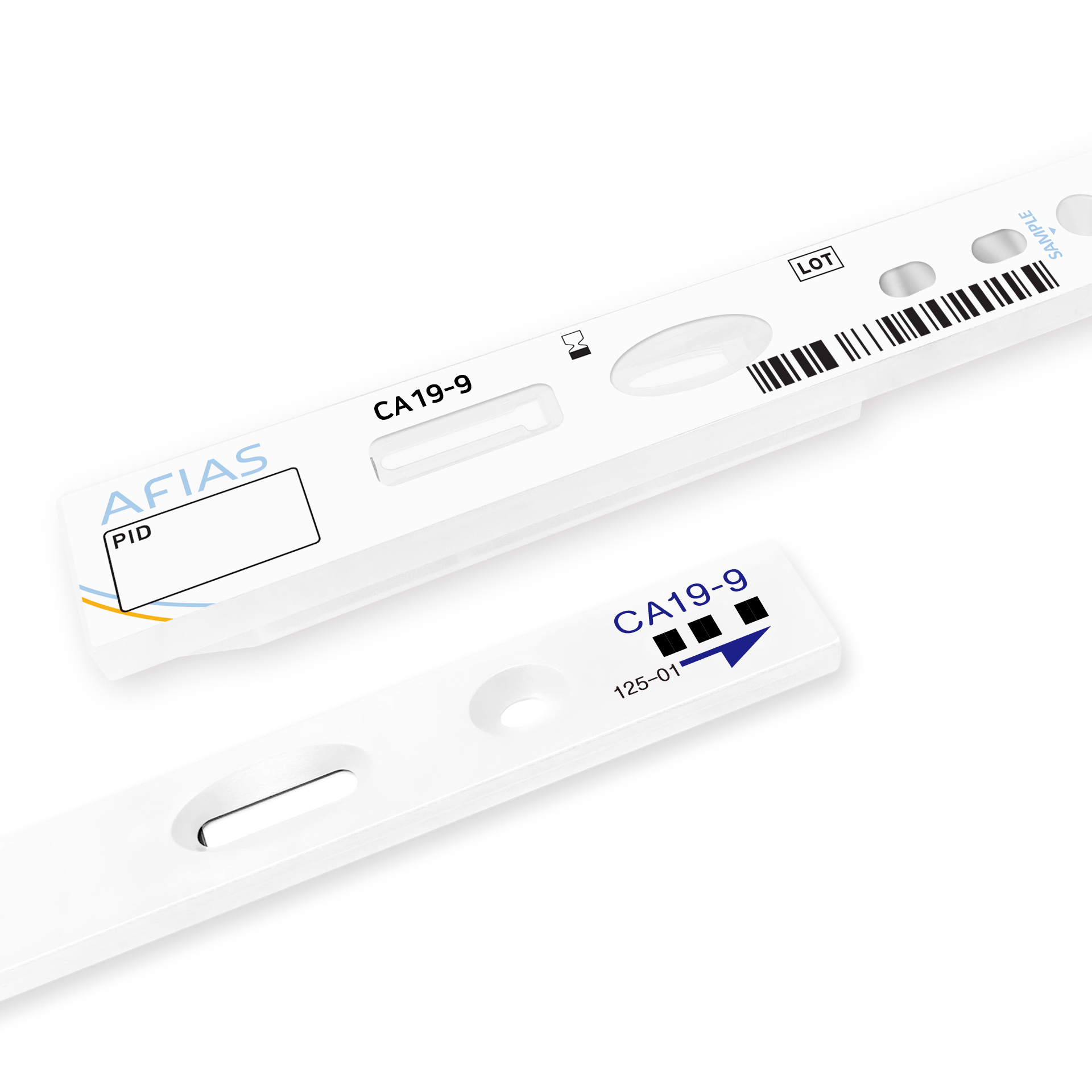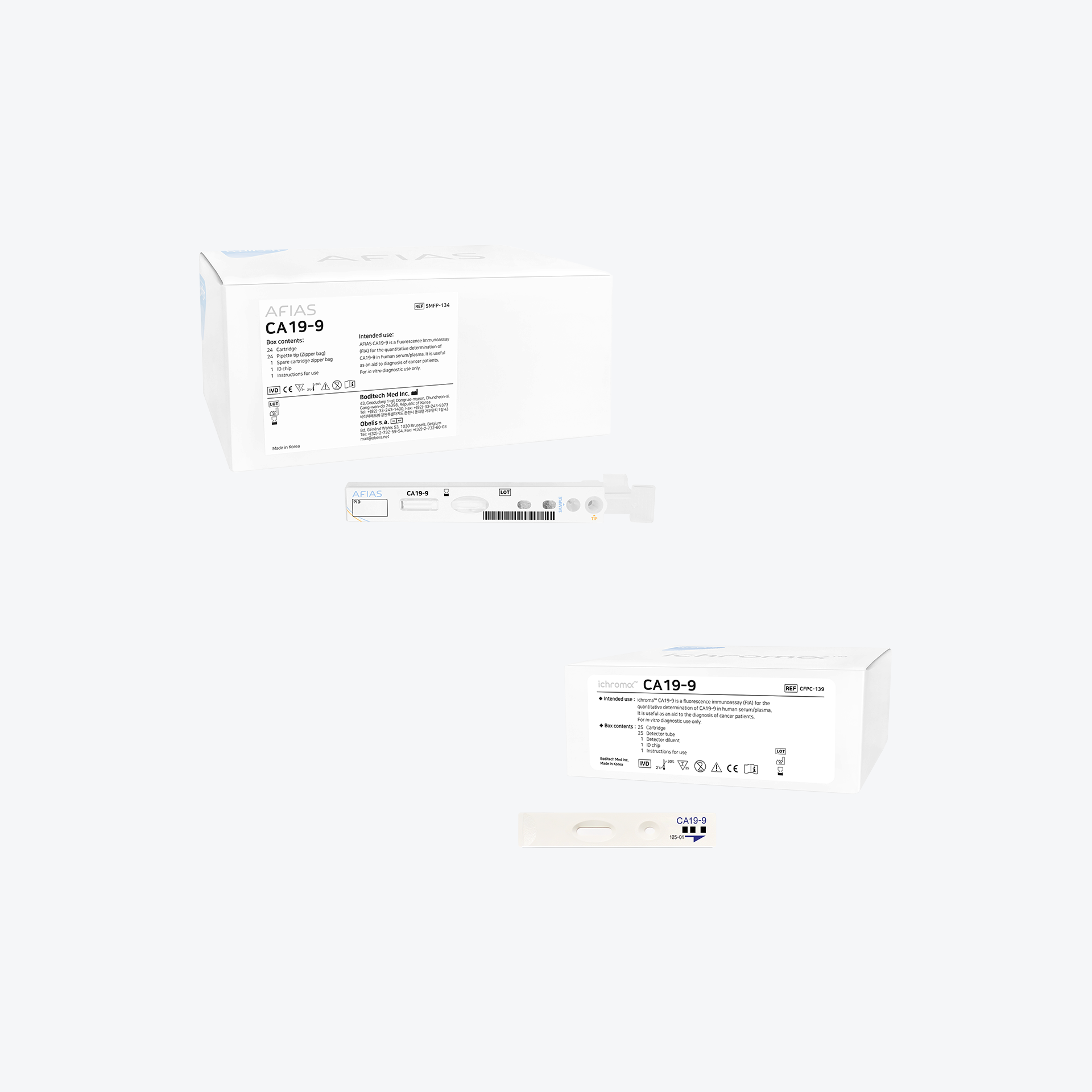CA19-9
Supporting to diagnose pancreatic cancer
CA19-9 is the common term for carbohydrate antigen sialyl Lewis a and it is also called cancer antigen 19-9. It is a protein that exists on the surface of certain cancer cells, and normal results are less than 37 U/mL. A high amount of CA 19-9 is most often caused by pancreatic cancer, but it can be elevated in many other cancers and other diseases and it is not useful for people who are Lewis antigen-negative.
- Diagnosis diseases
- Pancreatic Cancer
Available Instruments
About Using Reagent
-
Sample Types
Serum, Plasma -
Reaction Time
12 mins -
Detection Range
8-1000 U/mL -
Intended Use
Quantitative determination of CA19-9 in human serum/plasma
In Your Medical Field
Pancreatic cancer is one of the most aggressive human cancers and is characterized by a rapid tumor spread and a dismal prognosis with only a 6% 5-year survival rate after its diagnosis. Therefore, getting regular checkups is very important and it is crucial to diagnose or detect the recurrence at its early stage. CA19-9 is one of the most well-known and widely used as a biomarker in PDACs, which accounts for the majority of pancreatic cancers, is useful as an aid to the diagnosis of cancer and can be used to monitor cancer treatment, predict prognosis and recurrence.








